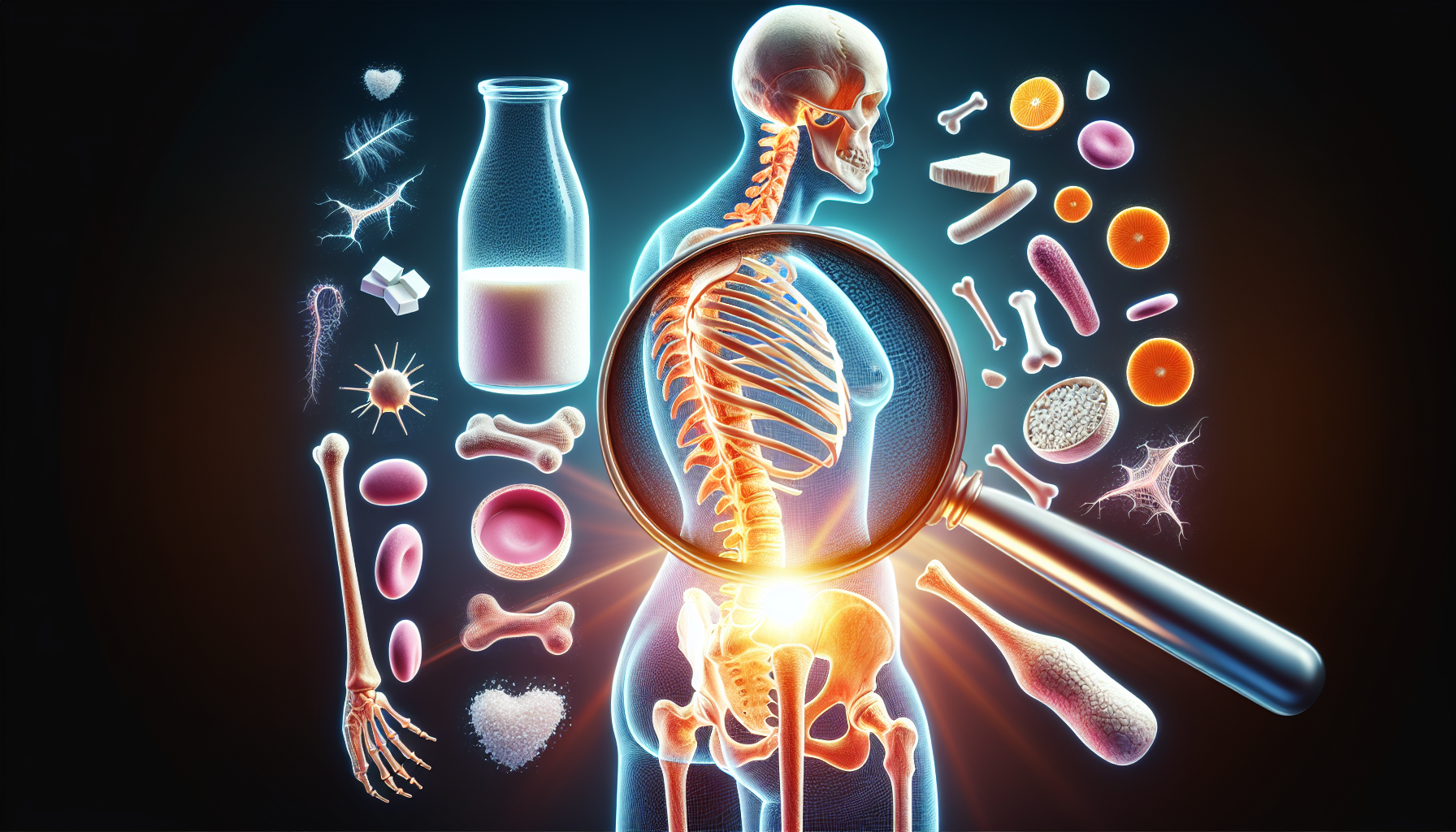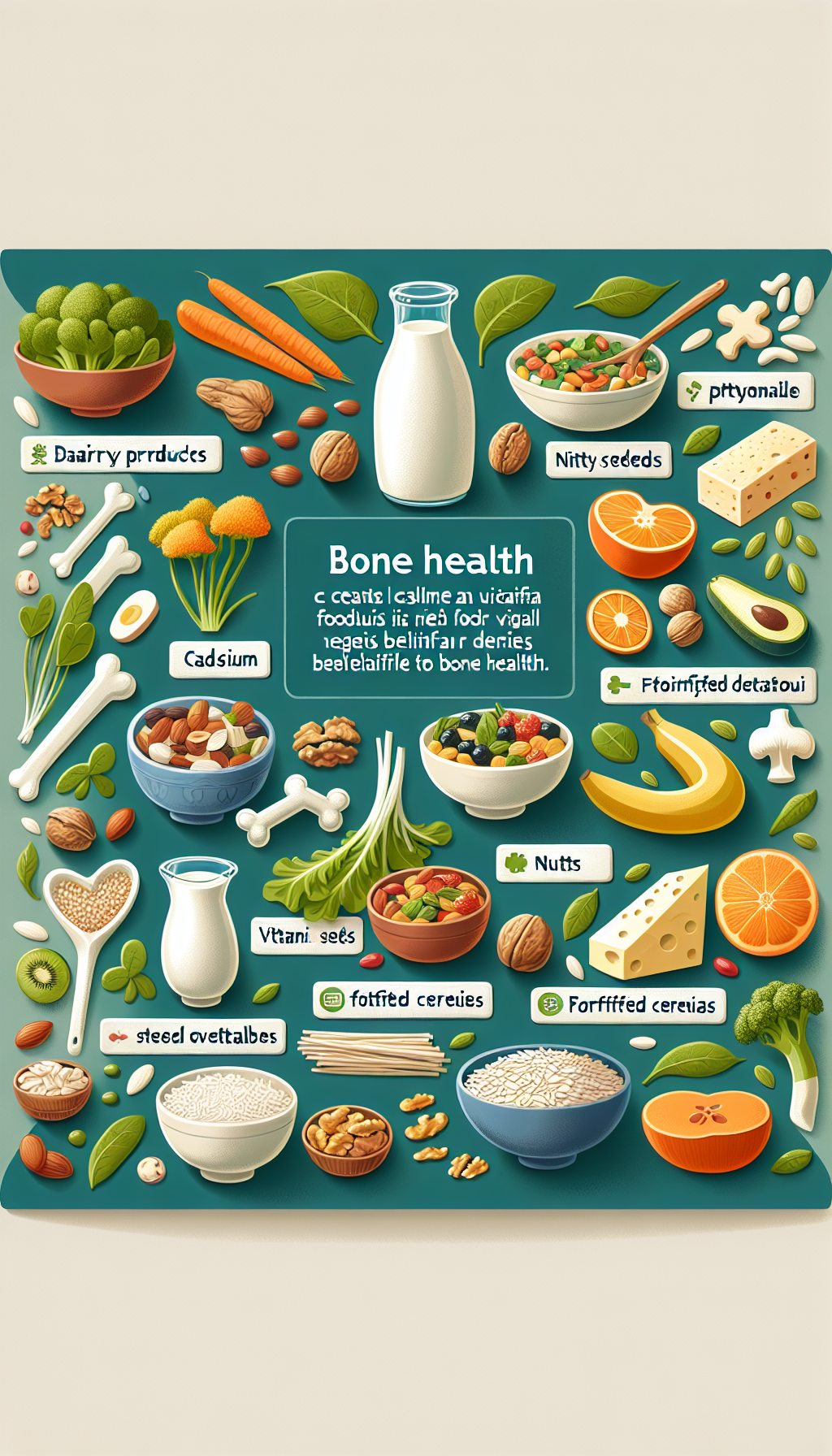In a world where lifestyle diseases are on the rise, bone health often gets less spotlight compared to concerns like cardiovascular or brain health. However, maintaining strong bones is imperative for overall well-being, mobility, and a quality life, especially as we age. In this comprehensive guide, we will delve into how nutritional interventions can play a pivotal role in bolstering bone health and preventing bone-related issues.
Understanding Bone Health
Bones are living tissues that continuously break down and rebuild. This dynamic process is influenced by various factors, including nutrition, hormonal balance, physical activity, and certain lifestyle choices. The goal of optimal bone health is to maintain a balance between bone resorption (breakdown) and bone formation, ensuring that bones remain strong and dense throughout life.
For an in-depth look at the essentials of bone health, consider reading about Bone Health on our site.
The Role of Nutrition in Bone Health
Nutrition is one of the cornerstones of bone health. Calcium and vitamin D are well-known for their roles in maintaining bone density, but they are not the sole heroes in the narrative of bone health.
Beyond Calcium and Vitamin D
Emerging research points to various other nutrients that support bone health beyond calcium and vitamin D. For instance, magnesium plays a crucial role in converting vitamin D into its active form, which is essential for calcium absorption. Similarly, vitamins K1 and K2 are critical for the formation of a protein called osteocalcin, which helps bind calcium into the bone matrix. To explore other vital nutrients for bone health, read about Nutrients That Support Bone Health Beyond Calcium and Vitamin D.
Protein’s Impact on Bone Health
Protein is another essential nutrient for bone health. It makes up about 50% of bone volume and around one-third of its mass. Adequate protein intake is necessary for bone repair and for providing the structural matrix upon which minerals are deposited. However, the balance is key, as excessive protein might lead to calcium loss. Discover more about this balance in Understanding the Role of Protein in Maintaining Bone Health.
Micronutrients and Bone Density
Micronutrients, such as zinc, copper, and manganese, are also integral to bone health. They are involved in bone matrix formation and the synthesis of collagen. A deficiency in these micronutrients can impair bone strength and repair mechanisms. Learn about the importance of these nutrients in The Contribution of Micronutrients to Bone Density Enhancement.
Hormonal Changes and Bone Density
Hormones significantly influence bone density. For instance, estrogen plays a protective role in bone health, which is why postmenopausal women are at an increased risk for osteoporosis due to a decrease in estrogen levels. To understand this relationship better, consider reading Evaluating the Link Between Hormonal Changes and Bone Density.
Combating Osteoporosis Through Diet and Exercise
Diet and exercise are powerful tools in the fight against osteoporosis. A diet rich in calcium and vitamin D is fundamental, but so is incorporating foods with omega-3 fatty acids, antioxidants, and proteins. Regular weight-bearing and muscle-strengthening exercises are equally essential as they help in building and maintaining bone density.
To understand how to incorporate these interventions into your routine, delve into Combating the Risk of Osteoporosis Through Diet and Exercise.
The Influence of Lifestyle on Bone Health
Lifestyle choices, such as smoking, excessive alcohol consumption, and a sedentary lifestyle, can negatively impact bone health. On the other hand, adopting a healthy lifestyle that includes regular exercise and a balanced diet can significantly enhance bone density and strength.
External Resources Supporting Bone Health
As we underscore the importance of nutritional and lifestyle interventions for bone health, it’s valuable to reference high-quality external resources. Here are a few:
-
The National Osteoporosis Foundation provides an extensive resource on the importance of calcium and vitamin D in maintaining bone health. National Osteoporosis Foundation – Calcium/Vitamin D
-
The International Osteoporosis Foundation offers insights into the role of proteins and other micronutrients in bone health. International Osteoporosis Foundation – Nutrition
-
The Bone Health & Osteoporosis Foundation presents guidelines on exercise for bone health. Bone Health & Osteoporosis Foundation – Exercise
-
Harvard Health Publishing discusses lifestyle factors that affect bone health. Harvard Health Publishing – Lifestyle and Bone Health
-
The Academy of Nutrition and Dietetics covers nutrition’s role in bone health, including lesser-known nutrients. Academy of Nutrition and Dietetics – Nutrition and Bone Health
Conclusion
Bone health is a vital component of a healthy lifestyle, yet it is often overlooked. By understanding the critical role that nutrition plays, alongside exercise and healthy lifestyle choices, it is possible to maintain strong bones and prevent bone-related diseases. Incorporating a range of nutrients into your diet, understanding the impact of hormonal changes, and engaging in regular physical activity are all strategies that can help in supporting bone health.
As the evidence suggests, tackling bone health issues with nutritional interventions is not only about calcium and vitamin D; it’s about a holistic approach that includes various nutrients, lifestyle modifications, and an understanding of the body’s hormonal dynamics. By making informed choices, you can ensure your bones stay strong and healthy throughout your life.



